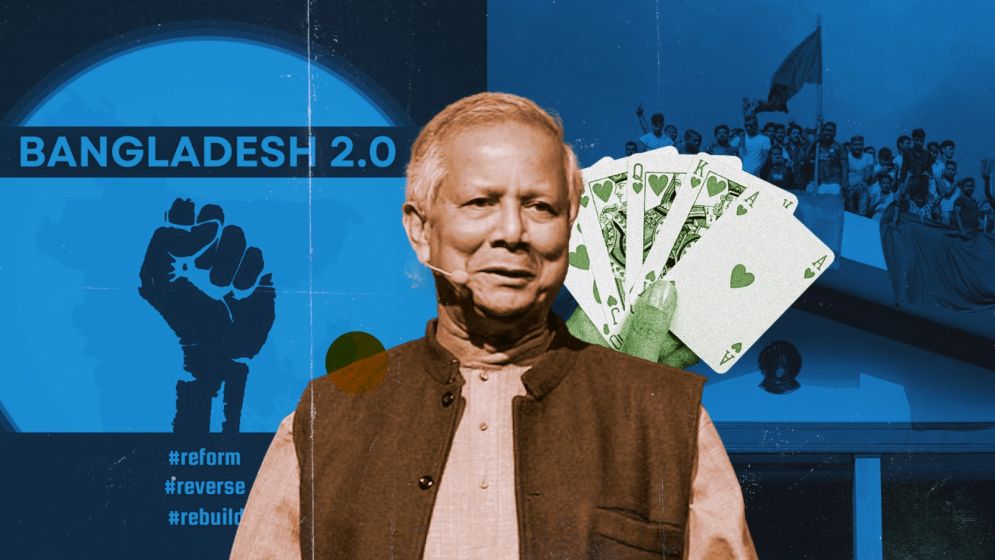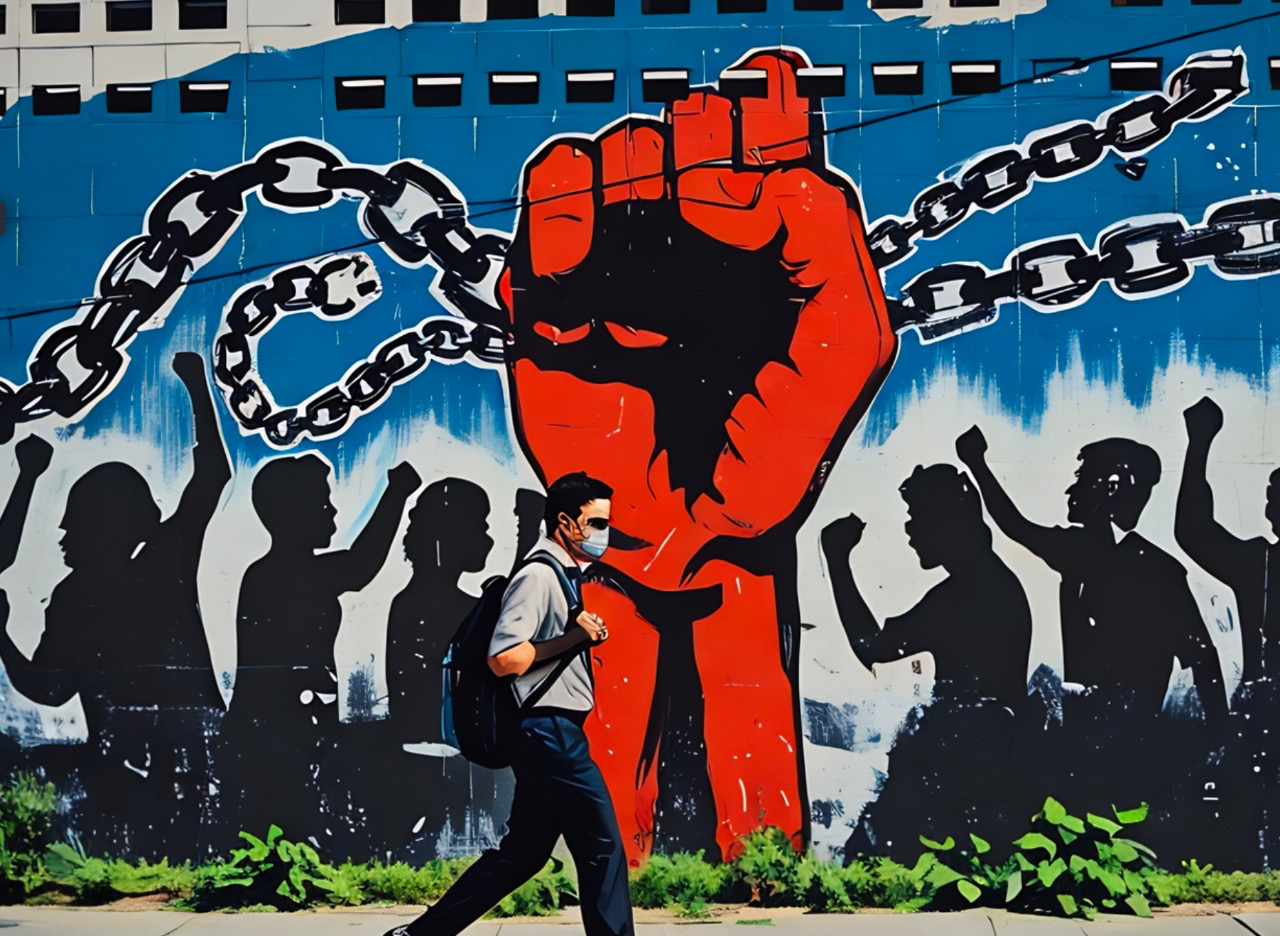Yunus is holding the cards. But can Bangladesh afford the bet?

As the saying goes, heavy is the head that wears the crown. In Bangladesh today, the weight is on the head, as well as it’s on the entire body politic.
At the center of this crucible stands Professor Muhammad Yunus. The question isn’t simply what he intends to do for the country–it’s what commitments and concessions he can secure from a political establishment that rarely gives an inch unless forced.
On social media, particularly among serious commentators on Facebook–where much of Bangladesh’s real-time political discourse now plays out–the threat of Yunus’ resignation is being taken seriously.
And paradoxically, that threat has become a source of leverage. The prospect of his exit has opened new political doors–perhaps even windows large enough to reshape the country’s near future.
If he pulls it off, Yunus could become the architect not just of a transitional moment, but of a national turning point.
But before venturing deeper into the possible outcomes, let’s acknowledge what’s become an open secret: there appears to be an informal gag order on Yunus’ inner circle. If there isn’t, there should be. This moment demands discipline, not commentary.
If members of his team want to support him, they’d do well to hold their counsel–and their tweets. The last thing this fragile moment needs is more static. This is Yunus’ play, and the board is his. In the parlance of Gen Z: let him cook.
The stakes for him personally are minimal. If his plan fails, he retreats with his reputation largely intact. But if it succeeds, he averts an immediate political breakdown–and maybe even carves out a path to long-term reform.
Either way, the onus is on others to deliver a
workable Plan B. And if recent history is any guide, any alternative will be
half-measured at best, damaging at worst.
What’s the real stake?
Let’s not kid ourselves: a post-Yunus election, managed by a cobbled-together consensus or regional brokers, will lack both moral clarity and international legitimacy. It will be a local performance for a regional audience, with India likely leading the applause.
But this kind of regional endorsement–particularly from Delhi–could prove politically toxic inside Bangladesh, where anti-India sentiment runs deep and wide.
Even those not aligned with the opposition BNP might see such an outcome as externally engineered. The optics, to put it mildly, will be terrible. The international community won’t buy it, and the electorate won’t either.
A bad election dressed in familiar nationalism is still a bad election.
The brutal truth is this: if a fair election is impossible under Yunus, it will be downright unimaginable under anyone else. So if we are destined to stage a flawed election, we might as well have it under someone who still carries a shred of global credibility.
Because if the world turns away, and the people do too, the cost won’t just be political. It will be national.
But the choices being made today come with consequences that stretch far beyond the current crisis. In fact, one of them may already be unfolding.
The recent public remarks by Chief of Army Staff Waqar Uz Zaman have almost certainly damaged the long-term viability of any future alliance between the military and civil society–a coalition that, however imperfect, has historically served as the last resort when Bangladesh’s political class drives the country into yet another dead end.
Without that fragile but functional alliance,
even international actors–already fatigued by Dhaka’s intransigence–will find
it nearly impossible to broker meaningful dialogue between warring political
camps.
A near-impossible odds
And should someone, against the odds, manage to assemble a similar coalition in the future, it won’t be a cadre of credible statesmen or principled professionals.
It’ll be a room full of influence-peddlers and opportunists, the kind of people who know how to get themselves invited to embassies and NGO roundtables but little else.
We only need to look a few months back to recall the sheer difficulty of cobbling together this current Interim Administration. We’re already scraping barrels right now and making it extremely difficult for what’s going to come next.
Some may argue that interim governments are meant to be emergency mechanisms, assembled in moments of national need. That’s true. But how Professor Yunus and his team are treated now will set a precedent–a very public one.
Their experience will be a signal to any future civil society leaders asked to step into the breach, likely as part of a restored caretaker government.
If Yunus is undermined, sidelined, or scapegoated, the message will be loud and clear: stay away.
And when the next political crisis inevitably arrives–whether it’s the need to install another caretaker government or something even more volatile–it won’t just be difficult to find the right people. It may be impossible.
—
Nayel Rahman is a political analyst

